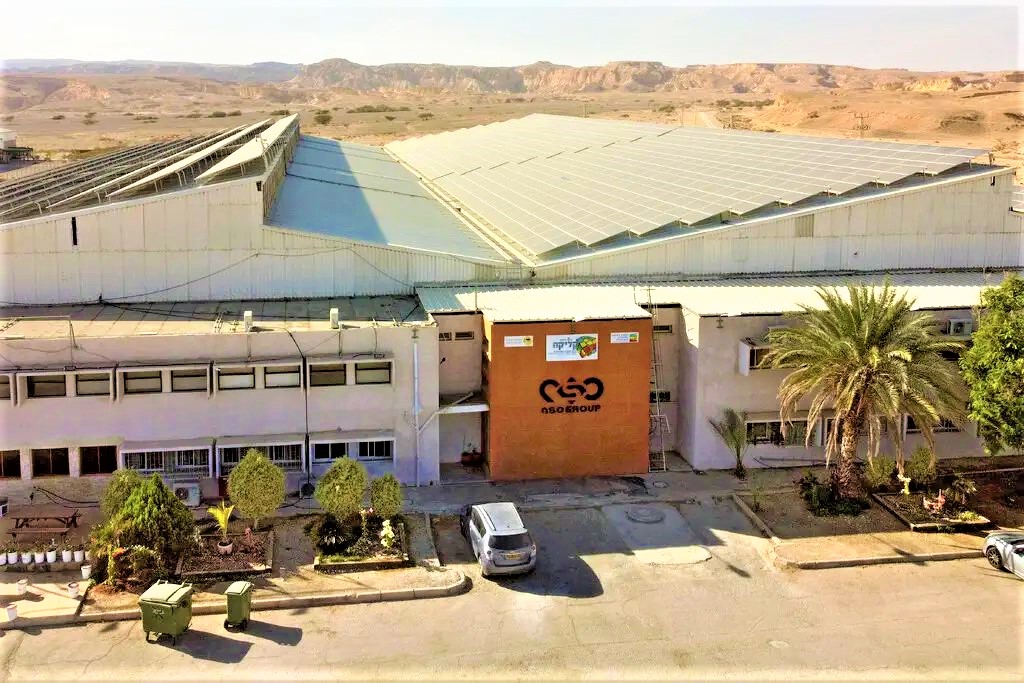The Security Apparati (Part 2): Peace Disruption by Pegasus
TRANSCEND MEMBERS, 6 Mar 2023
Prof Hoosen Vawda – TRANSCEND Media Service
Hear All, See All, and Do All Evil
“Digital Technologies like Pegasus have infringed ethics and human rights. They bestowed super powers to oppressive regimes in an unbridled manner.”[1]
4 Mar 2023 – This publication discusses the global transformation and advances effected by “The Digital Revolution”, also described as the Third Industrial Revolution, on surveillance strategies and how technologies are now available to find out what activities your neighbours are engaged in, by eavesdropping on them, using spyware. The days of traditional espionage are relegated to antiquity, while remote surveillance from space, from drones and even your personal communication devices using sophisticated, almost undetectable spyware is the new spectre in the armamentaria in peace disruption, which has even affected the private and personal lives of millions of high profile and simple humanoids in the 8,4 billion humanoid population of planet earth.
This is the shift from mechanical and analogue electronic technology to digital electronics which began in the latter half of the 20th century, with the adoption and proliferation of digital computers and digital record-keeping, that continues to the present day.[2] Implicitly, the term also refers to the sweeping changes brought about by digital computing and communication technologies during this period. From analogies to the Agricultural Revolution, Neolithic, and the First Industrial Revolution (1770-1840), the Digital Revolution marked the beginning of the Information Age. The Neolithic Revolution[3] led to masses of people establishing permanent settlements supported by farming and agriculture. It paved the way for the innovations of the ensuing Bronze Age and Iron Age, when advancements in creating tools for farming, wars and art swept the world and brought civilization[4]

Illustration of a basic Neolithic humanoid homestead and farming establishment 1200 years ago. Even at this stage each establishment, keen to know what the neighbouring homestead was engaged in. This was the earliest evidence of the precursor of modern spyware.
Central to this revolution is the mass production and widespread use of digital logic, MOSFETs (MOS transistors), integrated circuit (IC) chips, and their derived technologies, including computers, microprocessors, digital cellular phones, and the Internet.[5] These technological innovations have transformed traditional production and business techniques.[6] The recent advances in these novel technologies has led to the development of Pegasus spyware and similar “know all evil” software, has even made public, the most personal and private lives of certain humanoids. This was the case of the newpaper magnate in Washington whose mobile device was infected with Pegasus which led to exposure of his personal life by a middle eastern royalty, since the magnate did not succumb to blackmail, as threatened.
The Third Industrial Revolution would be followed by a Fourth Industrial Revolution.[7] The Fourth Industrial Revolution, 4IR, or Industry 4.0, conceptualises rapid change to technology, industries, and societal patterns and processes in the 21st century due to increasing interconnectivity and smart automation. The term was popularised in 2015 by Klaus Schwab, the World Economic Forum founder[8]

The NSO Pegasus Facility in Sapir, Israel, a threat to world peace.
Photo Credit Amir Levy – Getty Images
David Leonhardt ,wrote on 28th January, 2022 in the New York Times, about “The New Spy Wars- “A tale about Israel, Pegasus and the world”.[9] In this publication e narrates the odyssey of the NSO, a cybernetics company, possibly supported by the Israeli Government and Mossad, in the evolution of the much sought after covert spyware, called Pegasus, aptly named after the famous offspring of the Greek Gorgon, Medusa, as an important personality in the struggles of Perseus to protect her lover Andromeda. In Greek mythology, Pegasus was a winged horse that was said to have been born from the blood of Medusa after she was slain by Perseus. Pegasus was said to be a magnificent and swift creature with the power of flight, and he became a symbol of poetic inspiration and creativity. According to the myth, Pegasus was tamed by the hero Bellerophon, who rode him into battle against the monster Chimaera. However, Bellerophon’s arrogance led to his downfall, and Pegasus ultimately returned to the heavens, where he became a constellation. Pegasus has since become a popular symbol in art, literature, and culture, and is often depicted as a symbol of freedom, inspiration, and imagination. However, the NSO Group’s Pegasus Spyware is notoriously famous, as a supreme symbol of cyberespionage, It has certainly gained the admiration of royalty and plebeians as an object of desire and is a gamechanger in the convoluted world of spies, cheating spouses, anti-government activists, anti-terrorist security and industrial espionage resulting in global peace disruption.
It is interesting to note that when an Israeli company released a new spyware product known as Pegasus in 2011, it changed cyberwarfare. Pegasus could reliably decipher the communications of smartphones without the phone’s user knowing and without the cooperation of AT&T, Apple or any other mobile device company. On the positive aspects of Pegasus spyware, Mexico’s government bought Pegasus, from NSO Group, the Israeli start-up that created it, and used it to capture El Chapo, the drug lord. European investigators used the product to break up a child sex-abuse ring and stop terrorist plots.
But Pegasus also created some problems, and they quickly started becoming clear, too. Governments could use it to monitor and suppress critics and political opponents. Mexico was an example: It deployed the spyware not only against El Chapo but also against dissidents and journalists. Saudi Arabia and the United Arab Emirates used it against civil rights activists. The F.B.I. bought a version of Pegasus in 2019, according to a new Times Magazine investigation by Ronen Bergman and Mark Mazzetti. Since then, U.S. officials across the Trump and Biden administrations have debated whether to use it within this country as well as abroad. However, for the present, the F.B.I. has decided not to do so. The Commerce Department went further, adding NSO to a list of foreign companies that it says jeopardise national security and preventing U.S. companies from working with it. Even so, the American government’s copy of Pegasus continues to sit in a New Jersey office building, ready to be turned on if the federal government changes its policy.
In addition, Ronen’s and Mark’s story is full of other surprising revelations:-
- Israel has used Pegasus as a diplomatic sweetener. It gave the U.A.E. and Bahrain access to it, which helped lead to the Abraham Accords, the 2020 pact in which the Arab countries normalized relations with Israel. At one point, Saudi Arabia’s de facto leader, Crown Prince Mohammed bin Salman, threatened to block a crucial part of the deal unless Israel renewed Saudi Arabia’s license to use Pegasus.
- The C.I.A. bought a copy of Pegasus for Djibouti, to assist it in combating terrorism, despite the country’s record of human rights abuses, including the torture of dissidents.
- Pegasus has helped knit together right-wing nationalist governments around the world, with Hungary, India and Poland collaborating on its use. Benjamin Netanyahu, then Israel’s prime minister, decided not to order Poland’s Pegasus system to be cut off even after the country passed laws that many in Israel saw as Holocaust denial, and the Polish prime minister spoke of “Jewish perpetrators” among those responsible for the genocide.
“The unearthing” of the Pegasus spyware, has also led to a huge increase in government spying, globally, more so by autocratic regimes, which live on edge from the internal threat of activists who could possibly eradicate these oppressive regimes, as achieved in Iraq with the death of Saddam Hussein on 30th December 2006[10] and in Libya, with Muammar al Gaddafi,[11] assassinated by his own people on 20th October 2011, during the CIA orchestrated Arab Spring in the Middle East. These activities were done for both, good and for evil. In addition to these fascinating details, the story underscores a larger point about cyberwarfare. As Ronen and Mark write:
Cyberweapons have changed international relations more profoundly than any advance since the advent of the atomic bomb. In some ways, they are even more profoundly destabilizing — they are cheap, easily distributed and can be deployed without consequences to the attacker. Dealing with their proliferation is radically changing the nature of state relations, as Israel long ago discovered and the rest of the world is now also beginning to understand. More than 75 years after the invention of nuclear weapons, only nine countries appear to have a usable one. But dozens of countries already have cyberweapons. “Everybody seems to want them,” Mark told me, “and this gives enormous power to the countries who sell them and can use them for diplomatic advantage.”
The NSO Group has stated that its spyware is designed to help governments combat terrorism and other security threats, but there have been widespread concerns about its potential misuse, the lack of accountability and oversight surrounding its use. It is a complex issue, and any allegations of its use must be investigated thoroughly and transparently to ensure that human rights are protected. NSO Group is an Israeli cyber intelligence firm that develops and sells surveillance software to governments and law enforcement agencies. Their flagship product is Pegasus, a highly sophisticated and controversial spyware that has been linked to human rights abuses and attacks on journalists, activists, and politicians around the world. The company was founded in 2010 by a group of Israeli entrepreneurs and security experts, and has since become one of the leading players in the global surveillance industry.
The company’s flagship product is the Pegasus spyware, which is a sophisticated piece of malware that is designed to infiltrate mobile devices such as smartphones and tablets. Once installed, the spyware can access a wide range of data on the device, including emails, text messages, call logs, photos, and videos. It can also track the device’s location, record conversations, and activate the device’s microphone and camera. The spyware has been linked to a number of high-profile cases of human rights abuses, including the surveillance of journalists, activists, and other individuals who are critical of their governments. The NSO Group has stated that it only sells its products to vetted government agencies and that its technology is designed to help governments fight crime and terrorism while respecting human rights. However, the company has faced criticism from human rights organizations and privacy advocates, who argue that the use of such technology is inherently prone to abuse and violates fundamental rights to privacy and freedom of expression. Historically, Pegasus was first discovered in 2016 when it was used to target a human rights activist in the United Arab Emirates. Since then, it has been implicated in a number of high-profile cyberattacks, including the 2018 murder of Saudi journalist Jamal Khashoggi.
The capabilities of Pegasus are immense and is designed to be installed on a target’s smartphone, allowing the operator to access virtually all data stored on the device, including emails, text messages, call logs, and location data. It can also activate the phone’s camera and microphone, allowing for real-time surveillance. In July 2021, an investigation by a consortium of news organizations known as the Pegasus Project revealed that Pegasus had been used to target at least 50,000 phone numbers in more than 50 countries, including those of journalists, human rights activists, politicians, and business executives. The investigation implicated several governments, including India, Mexico, and Hungary, in using Pegasus to spy on their citizens.
The revelations have sparked widespread condemnation and calls for greater regulation of the cyber surveillance industry. NSO Group has denied any wrongdoing and claims that its software is only sold to government agencies for use in law enforcement and counterterrorism operations. However, the company has faced a number of lawsuits and investigations in recent years, including a recent ruling by an Israeli court that allowed victims of Pegasus attacks to sue NSO Group for damages.
The existence of the Pegasus spyware on third-party devices was discovered through a collaborative investigation by several media organizations, including The Guardian, Le Monde, and The Washington Post, as well as the non-profit organization Forbidden Stories and Amnesty International’s Security Lab.
The investigation was based on a leaked list of 50,000 phone numbers that were believed to be targets of the Pegasus spyware, which was created by the Israeli cybersecurity firm NSO Group. The list was first obtained by Forbidden Stories and Amnesty International and then shared with the media organizations for further investigation.
The investigation found evidence that the Pegasus spyware had been used to target journalists, human rights activists, lawyers, politicians, and other individuals in multiple countries. The spyware was capable of infiltrating both iOS and Android devices and could allow the attacker to remotely access the device’s camera, microphone, and other sensitive data.
The discovery of the Pegasus spyware on third-party devices highlights the importance of maintaining strong security measures and keeping software and operating systems up-to-date to protect against potential vulnerabilities and attacks. Al Jazeera journalists have been targeted by Pegasus spyware in the past. In 2019, a report by Citizen Lab revealed that Moroccan intelligence agencies used Pegasus to target the phones of two journalists working for Al Jazeera: investigative journalist Tamer Almisshal and human rights journalist Maati Monjib. The spyware was able to infect their phones and monitor their communications and activities.
In addition to Al Jazeera journalists, many other journalists, activists, politicians, and human rights defenders around the world have been targeted by Pegasus spyware. The spyware is designed to exploit vulnerabilities in mobile devices to gain access to the user’s data, including their messages, emails, call logs, and location information. It can also activate the microphone and camera on the device to record audio and video.
The use of Pegasus spyware to target journalists and activists is a serious violation of privacy and freedom of speech. It has been condemned by human rights groups, and there have been calls for governments to regulate the use of such spyware to prevent it from being used to violate human rights.
The countries which have used Pegasus spyware on its citizenry are numerous, indeed. The use of Pegasus spyware on citizens by various governments is a controversial issue, and the information available on this topic is constantly evolving. However, based on investigations by various organizations, including Citizen Lab, the following countries have been identified as having used Pegasus spyware on its citizenry:
- Mexico: The Pegasus spyware was reportedly used by the Mexican government to target human rights activists, journalists, and political opponents.
- Saudi Arabia: The Saudi Arabian government is alleged to have used Pegasus spyware to target dissidents and human rights activists, including Jamal Khashoggi, a Saudi Arabian journalist who was assassinated in Istanbul in 2018.
- United Arab Emirates: The UAE government has been linked to the use of Pegasus spyware to target human rights activists and dissidents, including Ahmed Mansoor, a prominent Emirati human rights activist.
- India: The Indian government has been accused of using Pegasus spyware to target journalists, activists, and opposition politicians, including members of the Indian National Congress.
- Azerbaijan: The Azerbaijani government has been linked to the use of Pegasus spyware to target opposition politicians, journalists, and activists.
- Hungary: The Hungarian government has been accused of using Pegasus spyware to target journalists and political opponents.
It is important to note that these are just a few of the countries that have been linked to the use of Pegasus spyware, and the full extent of its use may not be known due to the covert nature of surveillance activities. The use of Pegasus spyware has raised significant concerns about human rights abuses and privacy violations, and has led to calls for greater accountability and transparency in the global surveillance industry.
The following, specific journalists have been targeted by Pegasus spyware. The full extent of the journalists targeted by Pegasus spyware may not be known, as the use of the spyware is often done in a covert manner. However, investigations by various organizations have identified several high-profile journalists who have allegedly been targeted by the spyware. Some of these journalists include:
- Jamal Khashoggi: A Saudi Arabian journalist who was assassinated in Istanbul in 2018. It has been alleged that Pegasus spyware was used by the Saudi Arabian government to target Khashoggi before his murder.
- Rana Ayyub: An Indian investigative journalist who has reported on human rights abuses and corruption. Ayyub has alleged that she was targeted by Pegasus spyware in 2019.
- Cecilio Pineda Birto: A Mexican journalist who was assassinated in 2017. It has been alleged that Pegasus spyware was used by the Mexican government to target Pineda before his murder.
- Omar Radi: A Moroccan journalist who was arrested in 2020 on charges of espionage. Radi has alleged that he was targeted by Pegasus spyware prior to his arrest.
- Azam Ahmed: A former New York Times correspondent who covered Mexico and Central America. It has been alleged that Pegasus spyware was used to target Ahmed during his time reporting in Mexico.
- Siddharth Varadarajan: An Indian journalist and founder of the online news portal, The Wire. Varadarajan has alleged that he was targeted by Pegasus spyware in 2017.
It is important to note that these are just a few of the journalists who have been identified as potential targets of Pegasus spyware, and the full extent of its use against journalists may not be known. The use of Pegasus spyware against journalists has raised significant concerns about press freedom and the protection of human rights.
Regarding the deployment of Pegasus in the United States, reveals no direct evidence that Pegasus spyware has been used in the United States. It is important to note that the use of Pegasus spyware is highly regulated in countries with strong legal frameworks for surveillance activities, such as the United States. The use of such spyware is subject to strict legal oversight and can only be used for specific lawful purposes, such as national security or law enforcement. Additionally, companies that provide such software are required to comply with laws and regulations, such as the Foreign Intelligence Surveillance Act (FISA) and the Electronic Communications Privacy Act (ECPA). However, the exact extent of surveillance activities in the United States, including the use of spyware, is not always transparent and subject to ongoing debate and scrutiny.
There were also reports that Israel was using Pegasus on Benjamin Netanyahu. However, there is no strong evidence to suggest that Israel has used Pegasus spyware to target former Prime Minister Benjamin Netanyahu. In fact, Pegasus spyware is primarily sold to governments, law enforcement agencies, and intelligence services, and its use is subject to strict legal oversight and regulation. It is unlikely that the Israeli government would use Pegasus spyware to target one of its own political leaders, as such an action would be highly controversial and potentially illegal. However, it is important to note that the full extent of the use of Pegasus spyware is not always transparent and subject to ongoing scrutiny and investigation.
There were also some indication that Myanmar is using Pegasus spyware, but there was no definitive evidence to suggest that Myanmar has used Pegasus spyware against its citizens. However, it is important to note that the use of spyware for surveillance purposes is not uncommon in Myanmar, and there have been reports of human rights abuses and violations of privacy by the government in the past. The use of Pegasus spyware in other countries to target human rights activists and journalists has raised concerns about the potential misuse of such technology, in Myanmar, especially given the country’s history of political instability and military rule. It is important for governments and technology companies to ensure that surveillance activities are conducted in a transparent and accountable manner, and that the privacy and rights of citizens are respected and protected.
Other stories have emerged that Qasem Soleimani [12] was killed by using Pegasus spyware, but it is now confirmed that the former commander of the Islamic Revolutionary Guard Corps’ Quds Force, was not killed by the use of Pegasus spyware. Suleimani was killed in a US drone strike in January 2020 while he was traveling in a convoy near Baghdad International Airport in Iraq. Pegasus spyware is a type of surveillance software designed to monitor and track the activities of mobile devices, and it is unlikely to have been used in an operation such as the one that targeted Suleimani.

A United States autonomous, MQ-9 Reaper drone delivered the payload that killed Soleimani, as specifically authorised by former President Donald J. Trump
While the Pegasus spyware is the most sophisticated and advanced spyware technology and it works on the concept of Zero-day-Vulnerability of third-party applications. There are also limitations of Pegasus Spyware, like any surveillance software, has several limitations that can affect its functionality and effectiveness. Some of these limitations include:
- Limited device compatibility: Pegasus spyware is designed to work on specific devices and operating systems, which can limit its scope and effectiveness. For example, the software may not work on older devices or on devices with outdated operating systems.
- Detection by antivirus software: Pegasus spyware can be detected by antivirus software, which can limit its effectiveness and make it more difficult to use for surveillance purposes.
- Legal restrictions: The use of Pegasus spyware is subject to strict legal oversight and regulation in many countries, which can limit its use for surveillance activities. The software can only be used for specific lawful purposes, such as national security or law enforcement, and must comply with laws and regulations.
- Cost: Pegasus spyware is an expensive technology, and its use can be limited by budget constraints or by the availability of other, more cost-effective surveillance tools.
- Ethical concerns: The use of Pegasus spyware and other surveillance tools can raise ethical concerns about privacy, civil liberties, and human rights. The software can be used to monitor and track individuals without their consent or knowledge, which can be seen as a violation of their fundamental rights.
Subsequent to the development and successful, covert marketing, of Pegasus, by invitation, competition has emerged on the darknet. Pegasus spyware has thus far, however, manage to establish itself as the industry leader, but other software can achieve the similar results in terms of gaing “Dark Information” on individuals, as Pegasus and who manufacture these software
There are several other surveillance software products on the market that are similar to Pegasus spyware and can perform similar functions. Some of the main competitors to Pegasus spyware include:
- FinSpy: FinSpy is a surveillance software product developed by Gamma Group, a UK-based company. It is designed to monitor and track the activities of mobile devices and can be used for law enforcement and intelligence purposes.
- Hacking Team RCS: Hacking Team RCS is a surveillance software product developed by the Italian company Hacking Team. It is designed to monitor and track the activities of mobile devices, computers, and networks, and can be used for law enforcement and intelligence purposes.
- FlexiSPY: FlexiSPY is a surveillance software product developed by the Hong Kong-based company Vervata. It is designed to monitor and track the activities of mobile devices, computers, and networks, and can be used for both legal and illegal purposes.
- Cellebrite UFED: Cellebrite UFED is a digital forensics tool developed by the Israeli company Cellebrite. It is designed to extract data from mobile devices, computers, and other digital devices, and can be used for law enforcement and intelligence purposes.
The Bottom Line is that the hungry world of governments, spies, royalty, dictators, mafia and even reputable industries are all in search of what the opposition as well as the competition is engaged in. Data acquisition is of primary importance and in the 21st century, “Data Is Gold.”. Therefore, the future of Pegasus and new generation clones of spyware is relatively secure, globally, with the predictions being based on publicly available data and historical trends. That being said, the future of Pegasus spyware globally is uncertain, but it is likely to continue to face increased scrutiny and regulation. The spyware has been linked to multiple high-profile cases of surveillance and human rights violations, prompting calls for stricter regulations and oversight of surveillance technology. Governments and other organizations may also seek to develop or acquire alternative spyware that is more difficult to detect and trace. However, it is important to note that many countries have established laws and regulations that limit the use of such technology and protect the privacy and security of their citizens. Ultimately, the future of Pegasus spyware will depend on a variety of factors, including changes in the political and regulatory landscape, advancements in cybersecurity technology, and the actions of the companies and organizations that produce and use it. It is also intimated that Is it correct that NSO, as a company is in financial crisis, after exposure of Pegasus by global media. However, according to various news reports, the NSO Group has not publicly reported any significant financial troubles related to the exposure of Pegasus spyware. It is important to note that the NSO Group is a private company, and financial information about its operations is not publicly available. Any reports about the company’s financial status or performance are typically based on speculation or insider information. However, the negative publicity and increased scrutiny around Pegasus spyware may have an impact on the company’s business operations and reputation. Some countries may choose to limit or ban the use of NSO Group’s technology, and potential clients may be wary of working with the company due to concerns about the legality and ethics of surveillance activities. However, it is difficult to determine the exact impact on the company’s financial situation without access to detailed financial information. NSO Group is a technology company that provides a range of software solutions for governments, law enforcement agencies, and other organizations. In addition to Pegasus spyware, which is its most well-known product, NSO has developed several other software solutions for global use, including:
- FINS: This is a lawful interception platform that is designed to help law enforcement agencies intercept and analyze communications over various digital channels, including voice, text, and social media.
- GSS: This is a location tracking and analysis system that is designed to help security agencies track and analyze the movements of individuals using mobile devices.
- Phantom: This is a cyber intelligence and network security solution that is designed to help organizations detect and respond to cyber threats.
- SMI: This is a social media monitoring and analysis platform that is designed to help intelligence agencies monitor social media platforms for potential threats.
NSO Group’s software and technology has raised concerns about the potential for abuse and human rights violations and is therefore have been subject to bans and restrictions in several countries around the world. According to reports, the cutoff of September 2021, NSO’s Pegasus spyware had been banned or restricted in India, Mexico, and Morocco following allegations of human rights abuses and illegal surveillance. In addition, according to news reports, some countries have expressed concern over the potential for misuse of NSO’s technology, and have taken steps to regulate or restrict its use. For instance, in July 2021, the European Union proposed new rules to regulate the sale and export of surveillance technology, including products developed by companies like NSO Group.
The evolution and development of spyware such as Pegasus is the tip of the iceberg, nobody knows what has the technological capabilities of China, Russia, North Korea and India are collectively and it is highly likely that these countries, together with CIA, MI6, Mossad and even European Union have their own spyware capable of hiding itself, on all mobile devices, in a covert manner. Similarly, the crime syndicates and the militant groups are probably two stages ahead of spyware development, to control is operatives by the ingenuity of generative artificial intelligence, already. In the next 3 years the author predicts that there will be a mammoth profusion of this technology and it will be impossible for the ordinary humanoids to keep up with attacks by spyware programmes. Perhaps, we all need to regress to analogue communicators, in the future.
On the positive side and apart from knowing about suicide bombers, terrorist projects and syndicated corruption and crime, as in South Africa, the spyware would play a pivotal role in the fight against moral as well as social degeneration, globally. It is envisaged that possibility of being aware that the infection of your mobile devices, with such spyware would be a deterrent to common criminals, white-collar crimes, cheating spouses, medical mafia, the erring, financially motivated, healthcare professionals and disloyal employees, to mend their aberrant ways. This would be achieved from the fear, of understanding that literally, “the biggest brother“ is watching the misdemeanants, hearing them and knows what you reveal, as well as what you conceal, in the depths of your reptilian brains, as well as in the darkest, secret corner of your personal lives..
References:
[1] Personal quote by author February 2023
[2] https://en.wikipedia.org/wiki/Digital_Revolution#:~:text=E.%20Schoenherr%2C%20Steven%20(5%20May%202004).%20%22The%20Digital%20Revolution%22.%20Archived%20from%20the%20original%20on%207%20October%202008.
[3] https://www.bing.com/search?q=what+is+neolithic+revolution&cvid=3fc4b42f5841487fa2efd9725adc64e6&aqs=edge.2.69i57j0l8j69i11004.11547j0j1&pglt=41&FORM=ANNAB1&PC=U531#:~:text=Neolithic%20Revolution%20%2D%20HISTORY-,https%3A//www.history.com/topics/pre%2Dhistory/neolithic%2Drevolution,-The%20Neolithic%20Revolution
[4] http://searchcio.techtarget.com/definition/Information-Age
[5] https://en.wikipedia.org/wiki/Digital_Revolution#:~:text=Debjani%2C%20Roy%20(2014).%20%22Cinema%20in%20the%20Age%20of%20Digital%20Revolution%22%20(PDF).
[6] https://en.wikipedia.org/wiki/Digital_Revolution#:~:text=Bojanova%2C%20Irena%20(2014).%20%22The%20Digital%20Revolution%3A%20What%27s%20on%20the%20Horizon%3F%22.%20IT%20Professional%20(Jan.%2DFeb.%202014).%2016%20(1)%3A%208%E2%80%9312.%20doi%3A10.1109/MITP.2014.11.%20S2CID%C2%A028110209.
[7]https://www.bing.com/search?q=Fourth+Industrial+Revolution&aqs=edge..69i57j69i11004.875523j0j1&pglt=41&FORM=ANNAB1&PC=U531
[8] https://www.bing.com/search?q=Fourth+Industrial+Revolution&aqs=edge..69i57j69i11004.875523j0j1&pglt=41&FORM=ANNAB1&PC=U531#:~:text=org/wiki/Fourth_Industrial_Revolution-,The%20Fourth%20Industrial%20Revolution%2C%204IR%2C%20or%20Industry%204.0%2C%20conceptualises%20rapid,popularised%20in%202015%20by%20Klaus%20Schwab%2C%20the%20World%20Economic%20Forum%20founder,-and%20%E2%80%A6%20See
[9] https://www.nytimes.com/2022/01/28/briefing/pegasus-spyware-espionage-cyberwarfare.html
[10] https://www.bing.com/search?q=saddam+hussein+death+date&form=ANNH01&refig=8ffac2cc05c440589f85acfeb6fd046b&sp=2&lq=0&qs=MT&pq=saddam+hussein+&sk=MT1&sc=6-15&cvid=8ffac2cc05c440589f85acfeb6fd046b
[11] https://www.bing.com/search?q=muammar+gaddafi+death&cvid=2cb364ffa4644338b28b472eb1f82ae2&aqs=edge.1.69i57j0l8j69i11004.12522j0j1&pglt=41&FORM=ANNAB1&PC=U531
[12] https://en.wikipedia.org/wiki/Qasem_Soleimani
______________________________________________
 Professor G. Hoosen M. Vawda (Bsc; MBChB; PhD.Wits) is a member of the TRANSCEND Network for Peace Development Environment.
Professor G. Hoosen M. Vawda (Bsc; MBChB; PhD.Wits) is a member of the TRANSCEND Network for Peace Development Environment.
Director: Glastonbury Medical Research Centre; Community Health and Indigent Programme Services; Body Donor Foundation SA.
Principal Investigator: Multinational Clinical Trials
Consultant: Medical and General Research Ethics; Internal Medicine and Clinical Psychiatry:UKZN, Nelson R. Mandela School of Medicine
Executive Member: Inter Religious Council KZN SA
Public Liaison: Medical Misadventures
Activism: Justice for All
Email: vawda@ukzn.ac.za
Tags: Israel, Peace, Pegasus, Pegasus Project, Spying, Surveillance, Technology
This article originally appeared on Transcend Media Service (TMS) on 6 Mar 2023.
Anticopyright: Editorials and articles originated on TMS may be freely reprinted, disseminated, translated and used as background material, provided an acknowledgement and link to the source, TMS: The Security Apparati (Part 2): Peace Disruption by Pegasus, is included. Thank you.
If you enjoyed this article, please donate to TMS to join the growing list of TMS Supporters.

This work is licensed under a CC BY-NC 4.0 License.

